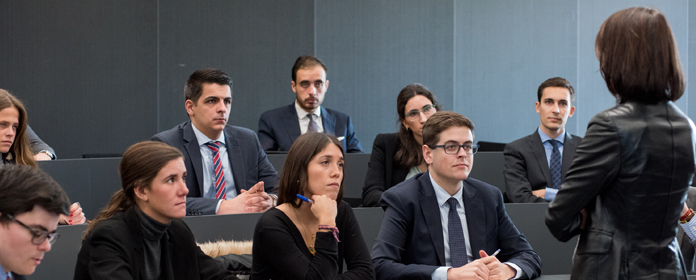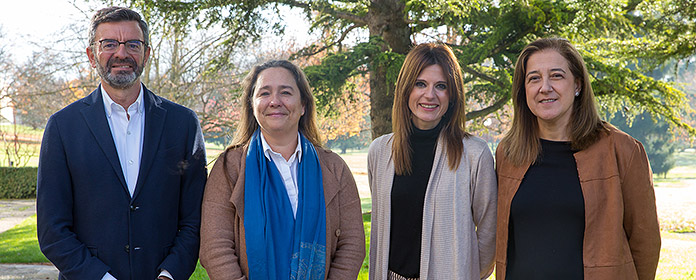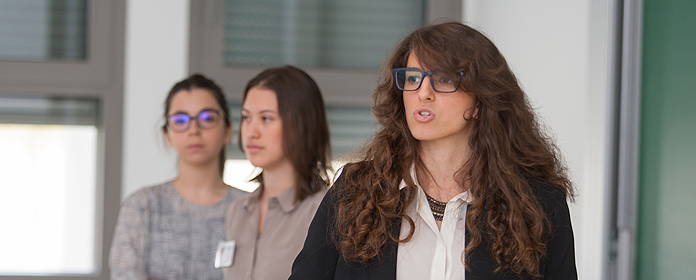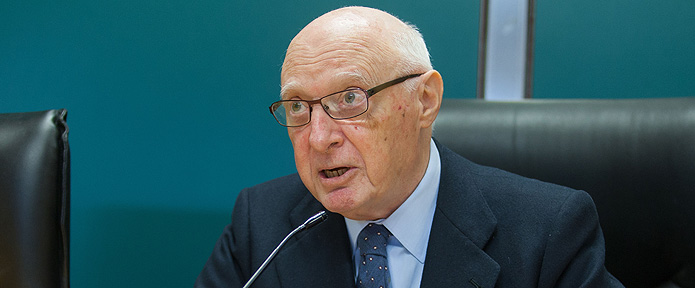"The disconnect between civil society and the military makes it easier for states to start wars".
Experts from the US, France and Spain met at the University to discuss the current link between the armed forces and civil society.
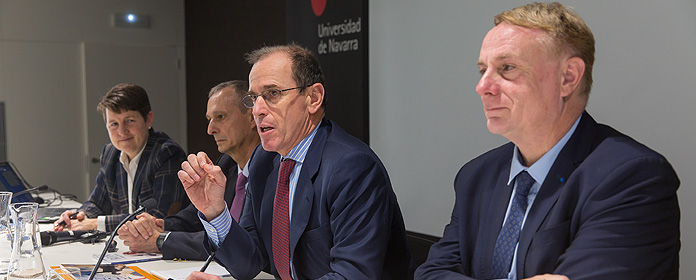
"The disconnect between civil society and the military makes it easier for states to start wars," said Colonel Marybeth Ulrich, a professor at the U.S. Army War College, before a conference room full of students, professors and researchers from the University of Navarra.
At presentation, Ulrich, a veteran of the US Air Force, spoke of the gap between civil society, the intellectual community and the armed forces in the United States. She explained that over the years, the military has become increasingly alienated and unrepresentative of society. Ulrich described civil society's perception of the military as "respectful indifference".
This gap has important consequences, the veteran said. First, the obligation of citizens to defend their country is eroded, while the burden on members of the military is disproportionately high. One possible solution to the disconnect between these two spheres is the restoration of non-partisan patriotism and the reinforcement at teaching of the mission statement of the armed forces.
General Jérôme Pellistrandi, editor-in-chief of the "Revue Défense Nationale", explained status in his native France. He said that the current status of the French army was due to the great human loss after the Great War, the Vichy Regime and the decolonisation of Algeria and Indochina, some historical episodes that have left their mark.
Pellistrandi also cited the 2015 terrorist attacks and the resulting Operation Sentinel as episodes core topic to understand the relationship between French civil society and its armed forces. For the general, the importance of defence is a reflection of the attitude of civilians. "Today's foreign policy cannot be understood without the military presence," he said.
The last speaker was Colonel José Luis Calvo Albero, who focused on explaining the "Defence Culture" in Spain.
Calvo explained that, in the Spanish case, the dissociation between the armed forces and civil society came about as a consequence of the Civil War and the subsequent Franco dictatorship. In 1992, with Felipe González as president, the threat of a military insurgency was declared to have been ruled out, but the problem of confidence in the military persisted.
It was then decided to highlight the importance of the role of defence for the country through the project "Defence Culture". The three main axes were: the Public Communication, the Education and the contact direct contact with the armed forces, through briefings or visits. The latter, said the colonel, has proven to be the most effective in raising awareness.
On 20 February, veterans of the armed forces of the United States, France and Spain gathered at the University of Navarra's high school de Ciencia y Sociedad for a session entitled "Armed Forces and Society in the 21st Century", organised by the Center for Global Affairs and Strategic Studies, the think tank of the School de Derecho, and the group de research de de la Historia Reciente (GIHRE). The session was moderated by General Salvador Sánchez Tapia, researcher of the think tank and professor at Degree of International Office of the University.

